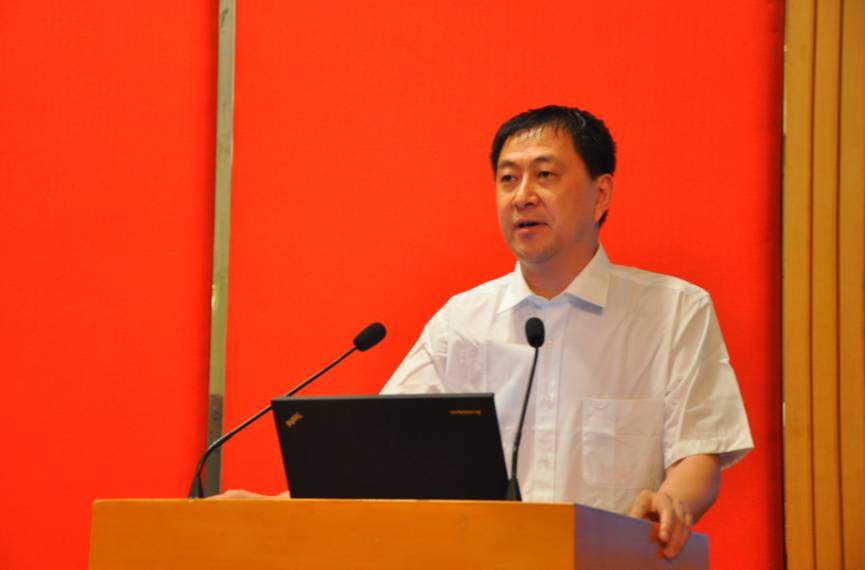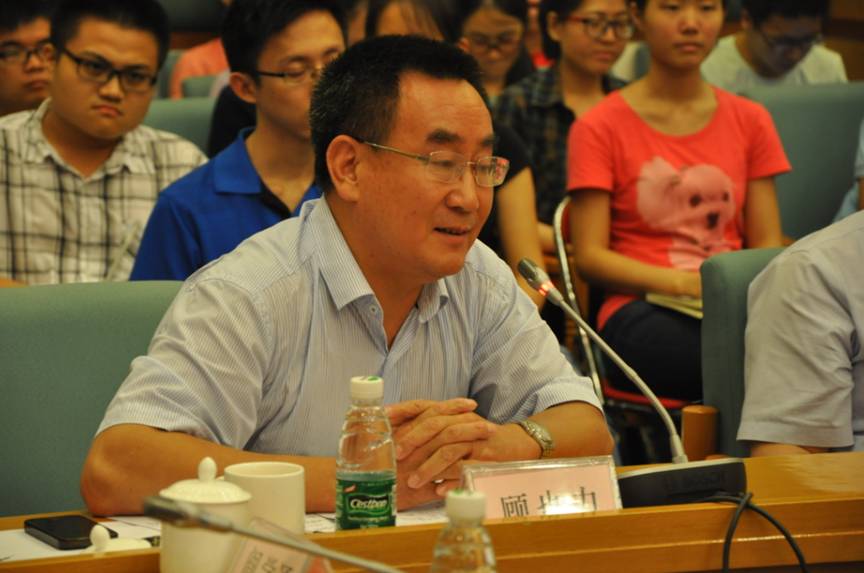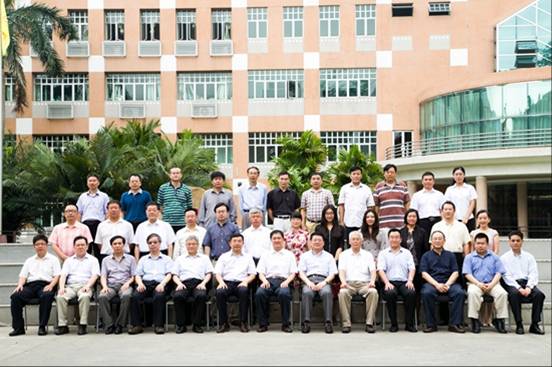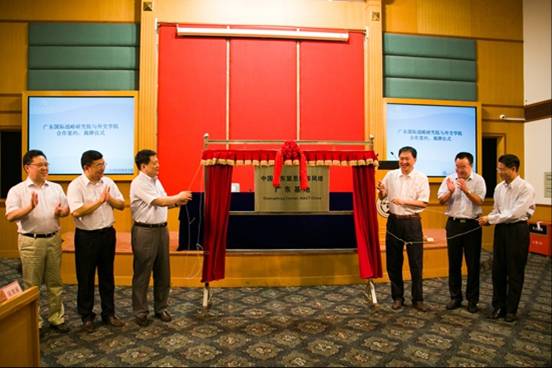The Symposium of “Evolution of International Situation and China’s New Peripheral Strategy” was hosted by GRIIS on June 28 at the international conference hall of the North Campus of GDUFS, which is attended by leaders of Ministry of Foreign Affairs, and well-known scholars from Tsinghua University,China Foreign Affairs University, Renmin University of China, Fudan University, China Institute of International Studies, Chinese Institute of Contemporary International Relations, Chinese Academy of Social Sciences, Shanghai Academy of Social Sciences, the National Defense University and other famous universities and research institutes in Guangzhou and focuses on the international situation changes in the new era and strategic adjustment of China. Zhou Jian, Counselor of Department of State Policy Planning under the Ministry of Foreign Affairs, Sui Guangjun, Party Secretary of GDUFS, and Gu Yeli, vice president of GDUFS were present, and Prof. Li Qing, Secretary General of GRIIS presided over the opening ceremony.

The morning seminar was about "changes of the international situation and the strategic environment surrounding China". It was divided into two sessions, which were chaired respectively by Chu Maoming, Counselor of Ministry of Foreign Affairs and researcher of GRIIS and Chen Hanxi, deputy secretary-general of GRIIS. Cui Liru, the former president of Chinese Institute of Contemporary International Relations, believed that in the second decade of this century, China should strengthen the country's overall capacity of coordination and resilience and concentrate on making good preparations.
As to adjustment ways of Chinese foreign policies, Prof. Jiang Ruiping, vice president of China Foreign Affairs University, believed that China should adjust strategic decision logic and clarify the relationship between economic development and the stability of surrounding areas.
Ruan Zongze, deputy director of China Institute of International Studies thought that we should consolidate relations with neighboring countries in a global perspective; that’s to say, maintain sound relationship not only with neighboring countries but also with African countries and Latin American countries.
Prof. Qin Yaqing, Party secretary of China Foreign Affairs University, believes that China's diplomacy is facing three challenges: how to deal with the relationship between adherence to peaceful development and maintenance of national core interests, common prosperity and China’s own development, participation in global governance and safeguard of national interests. Prof. Jin Canrong, deputy dean of College of International Relations of Renmin University of China, believes that although the international situation China faces is complex but generally controllable.
The afternoon seminar was also divided into two parts, chaired respectively by Prof. Hu Wentao, director of Publicity Department of GDUFS and Prof. Liu Jisen, deputy secretary of GRIIS. The theme was about “Chinese diplomatic adjustments and strategic thinking of the neighboring countries”. Huang Weiren, vice president of Shanghai Academy of Social Sciences, analyzed the environment for interconnection network of surrounding countries, especially the "One Belt, One Road".
Tang Yongsheng, standing deputy director of the Institute of Strategic Studies of National Defence University, talked about how to make use of geographic advantages and manage peripheral strategy. He said in the short term, China should enhance the perception of international events.
Prof. Yan Xuetong, Dean of Institute of Contemporary International Relations of Tsinghua University, made some comments on the effect of China's foreign policy transition. In the past two years, the Chinese government made a series of adjustments of its foreign policies and did not lay too much emphasis on economic construction as the center. So this adjustment and transformation is worthy of persistence. Prof. Yan Xuetong reckons that China's foreign policies cannot be premised on some wrong ideas. China adopted a policy of ambiguity on some issues for a long time, and this policy needs to be adjusted. He also believes that expecting only one solution to the territorial disputes is unrealistic.
Yang Bojiang, deputy director of the Institute of Japanese Research of Chinese Academy of Social Sciences believes that China cannot always adopt a comprehensive and clear policy for all diplomatic issues.;
Prof. Zhou Fangyin of GRIIS expressed his views on the key balance should be maintained under the context of transformation. Zhou Fangyin believes that we need to fully comprehend the objectives and strategies under the certain context. Enthusiasm and patience should play complementary roles. In the past year, China has proposed a lot of new ideas. When explaining them to the outside world, we can make efforts to integrate different ideas into an organic whole.

Gu Yeli, vice president of GDIFS said in his concluding remarks that the meeting was an academic feast.

At the opening ceremony, a cooperation agreement to build the "Guangdong base of China-ASEAN Think Tank Network" was signed by GRIIS and Ministry of Foreign Affairs. Zhou Jian, Qin Yaqing, Jiang Ruiping, Sui Guangjun, Gu Yeli, Chu Maoming were all present for unveiling the nameplate.


